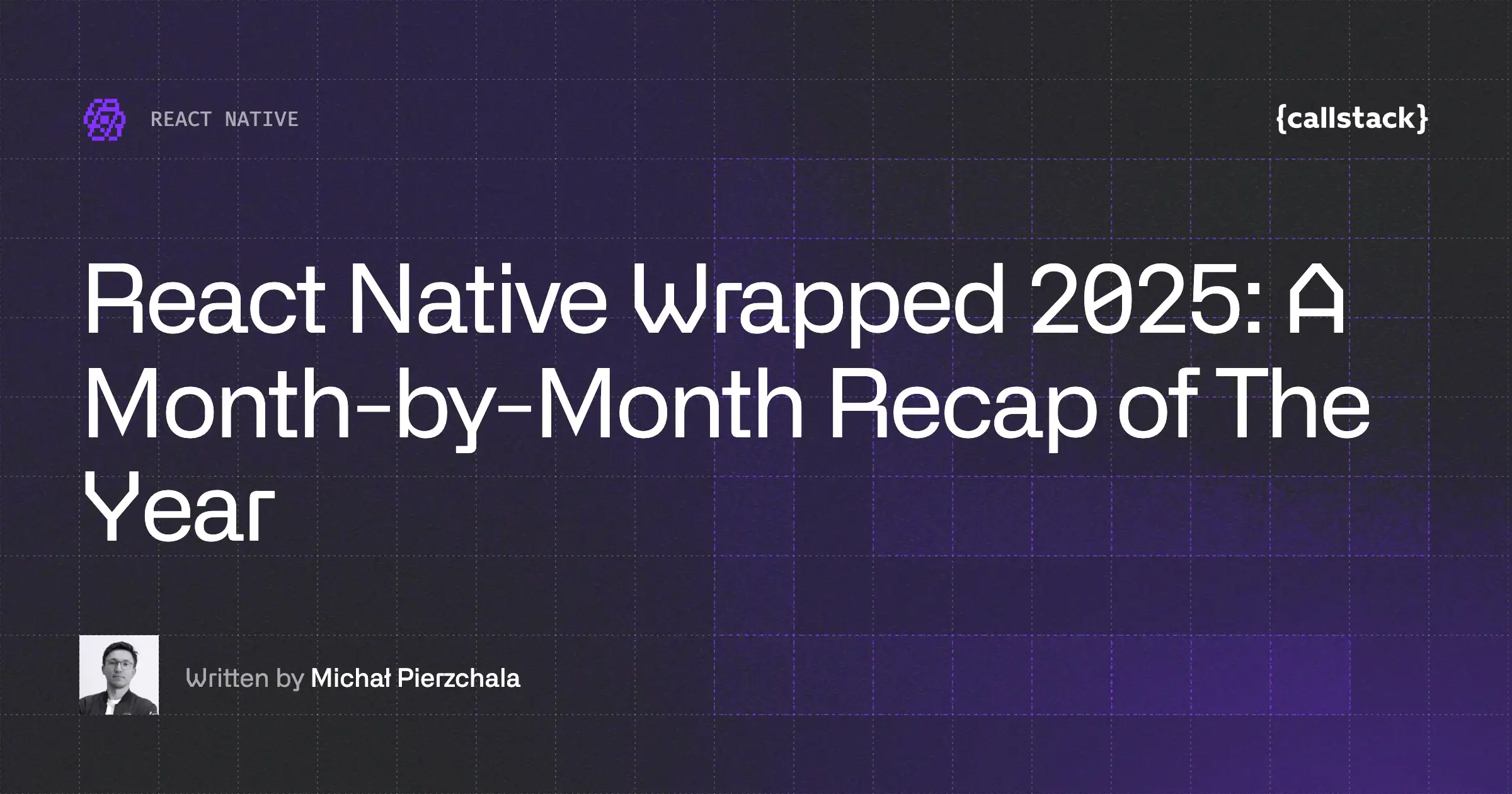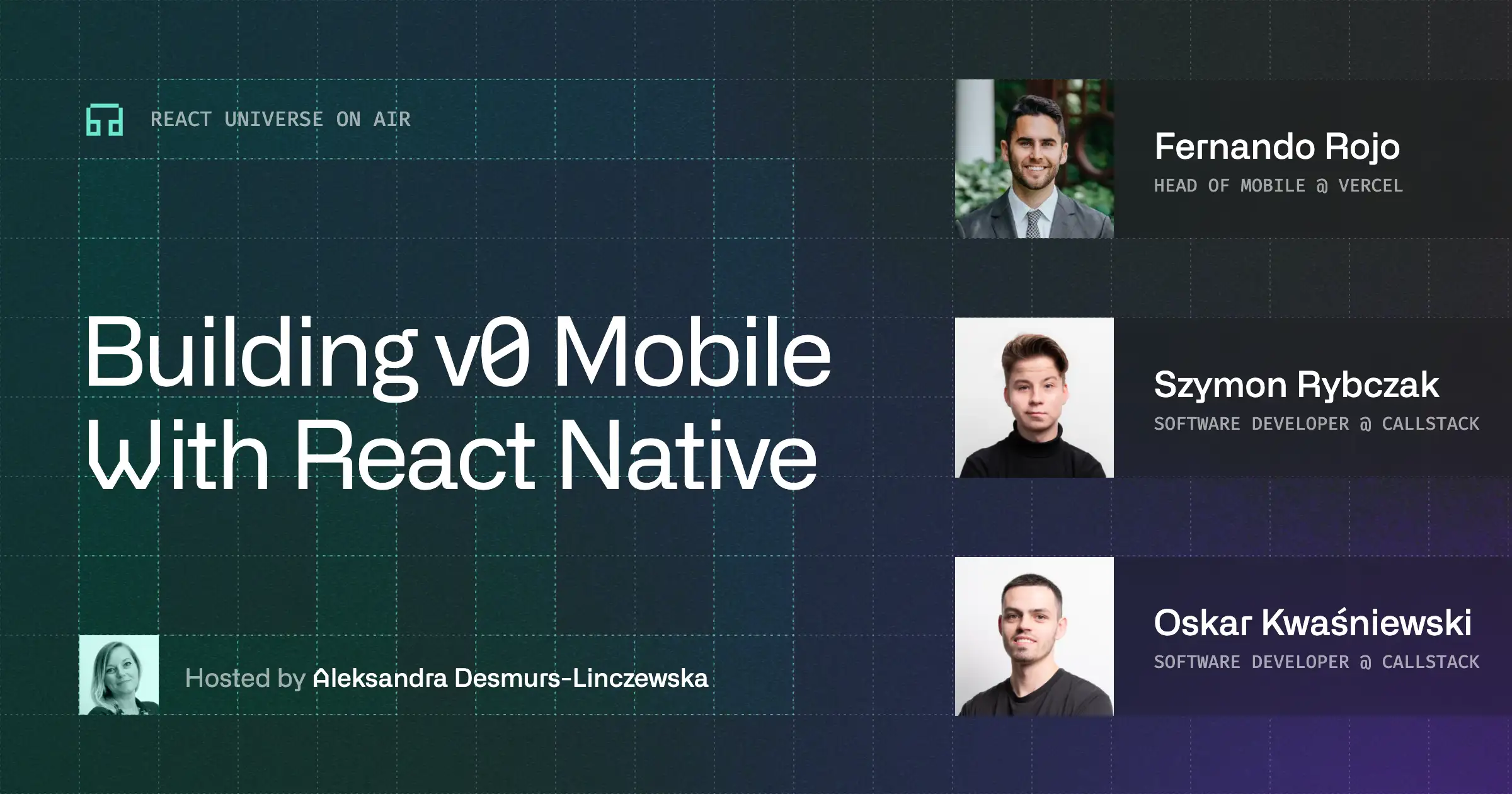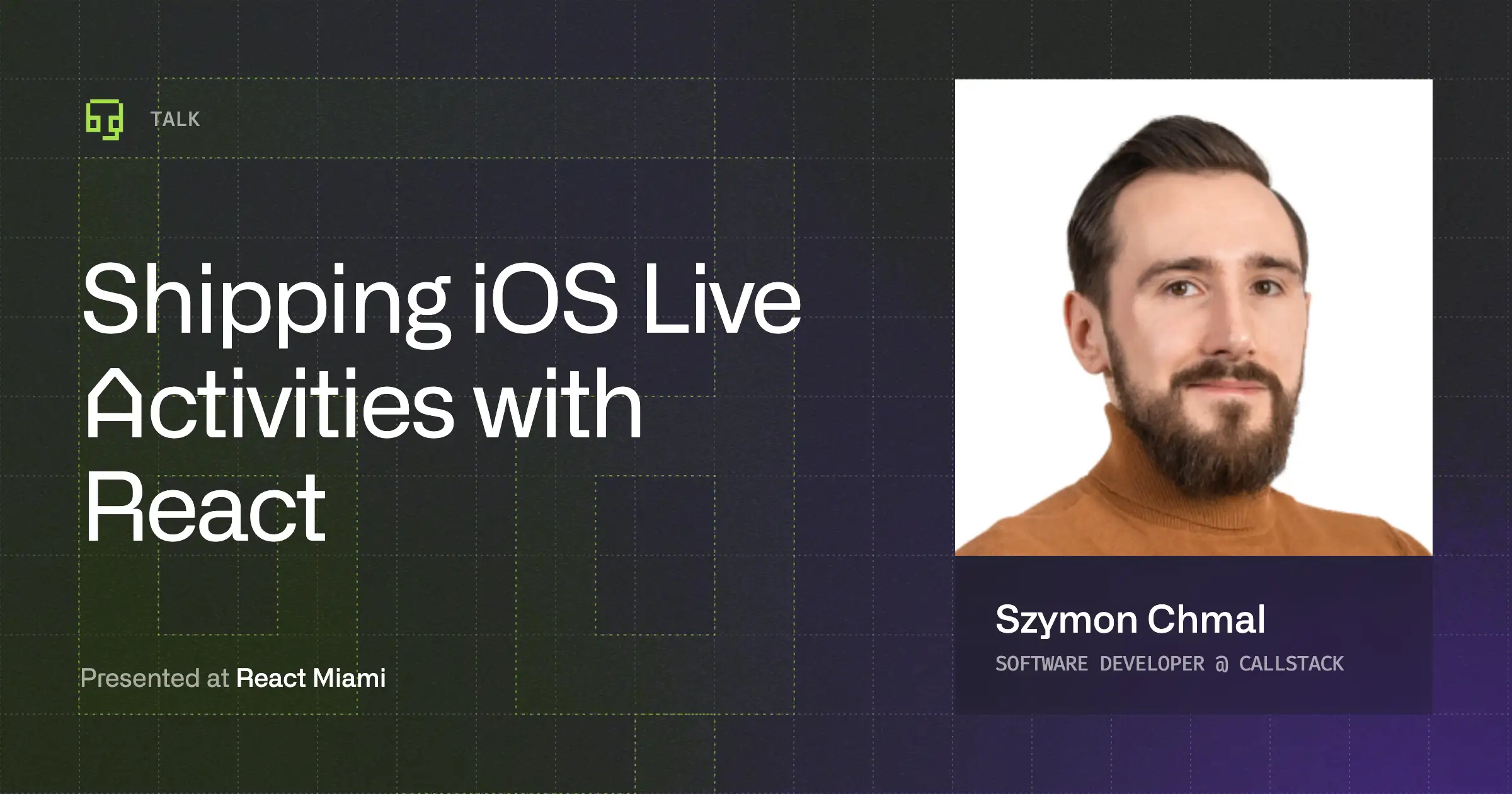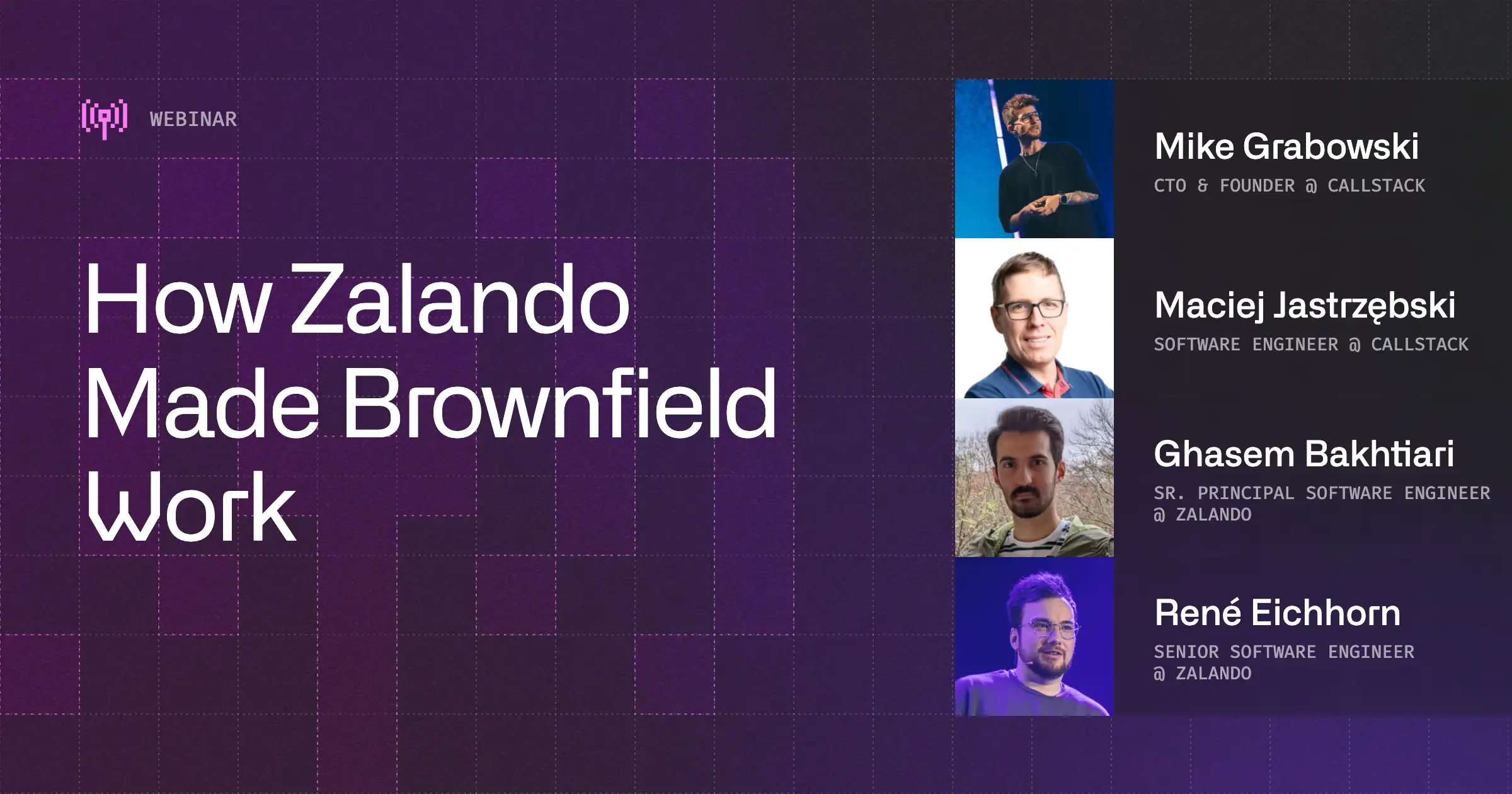Mike and Paweł share some details about what Re.Pack is and explain how it works. After a short introduction, Paweł explains what developers need the bundler for in the context of building React Native applications and how Re.Pack is different from the default bundler developed by Meta engineers - Metro.
Introduction to Re.Pack
- What Re.pack is and how it works
- Biggest selling points of Re.Pack
- Use of bundler in building React Native apps
- Biggest selling points of Re.Pack compared with Metro
- Re.Pack use cases - mini-apps and super-apps
- Benefits of using Re.Pack
Re.Pack use cases and future plans
Our experts talk about the origins of Re.Pack and reveal the reasons why the toolkit has replaced its predecessor - Haul. Also, Paweł describes what kind of Webpack 5 features are supported by Re.Pack and can be used by developers.
Also, Mike and Paweł talk about the scenarios of using Re.Pack. You’ll hear about what kind of apps are the best candidates for code splitting and what are the benefits of this solution including, for example, performance optimization, dynamic content delivery, loading logic on demand and many more.
At the end, having all the nurturing topics covered, Paweł shares some details about the future plans for the development of Re.Pack.
Learn more about Super Apps

React Native Wrapped 2025: A Month-by-Month Recap of The Year
The first edition of React Native Wrapped looks back at the year RN turned 10 and the ecosystem doubled down on the New Architecture. It provides a month-by-month record of 2025, covering major framework releases, the Legacy Architecture freeze, React 19 integration, and notable developments across tooling, performance, styling, native modules, Expo, and platform adoption.

Building v0 iOS and Fixing React Native Along the Way
Lorem ipsum dolor sit amet, consectetur adipiscing elit. Suspendisse varius enim in eros elementum tristique. Duis cursus, mi quis viverra ornare, eros dolor interdum nulla, ut commodo diam libero vitae erat. Aenean faucibus nibh et justo cursus id rutrum lorem imperdiet. Nunc ut sem vitae risus tristique posuere.

Shipping iOS Live Activities with React: The Voltra Story
Lorem ipsum dolor sit amet, consectetur adipiscing elit. Suspendisse varius enim in eros elementum tristique. Duis cursus, mi quis viverra ornare, eros dolor interdum nulla, ut commodo diam libero vitae erat. Aenean faucibus nibh et justo cursus id rutrum lorem imperdiet. Nunc ut sem vitae risus tristique posuere.

Scaling React Native at Zalando: How Brownfield Migration Paid Off
Lorem ipsum dolor sit amet, consectetur adipiscing elit. Suspendisse varius enim in eros elementum tristique. Duis cursus, mi quis viverra ornare, eros dolor interdum nulla, ut commodo diam libero vitae erat. Aenean faucibus nibh et justo cursus id rutrum lorem imperdiet. Nunc ut sem vitae risus tristique posuere.



